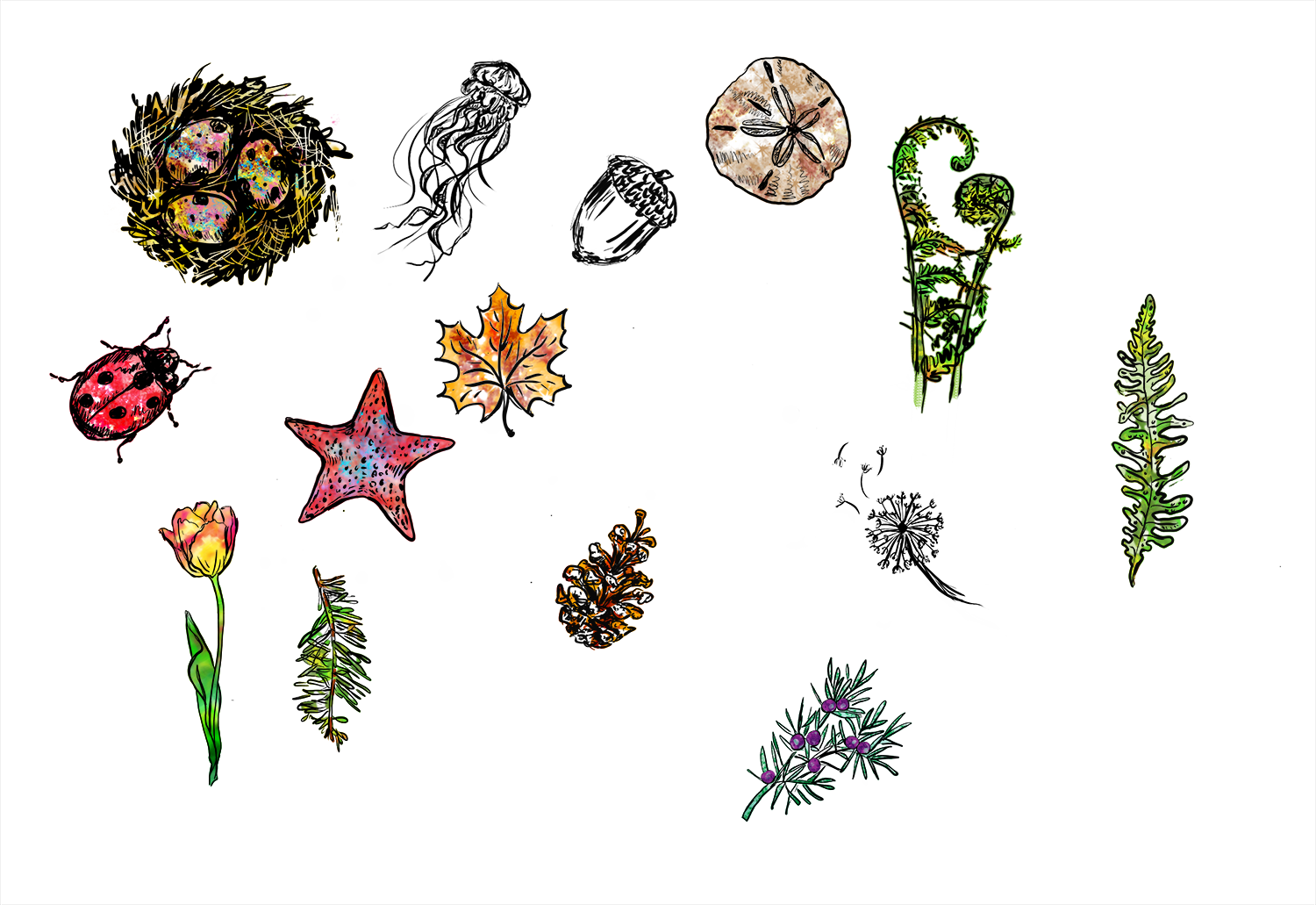
Grief Counselling That Meets You Where You Are
Supporting You Through Loss, Pain, and the Complex Emotions That Follow
What is Grief Counselling?
Grief counselling is a supportive therapeutic process designed to help individuals navigate the emotional, psychological, and even physical impact of loss. While most people associate grief with the death of a loved one, it can also arise from other significant life changes — such as divorce, the loss of a job, a major health diagnosis, or the end of a relationship. Grief is not limited to one specific type of loss, and it certainly isn’t limited to one kind of reaction.
There are different forms of grief that people may experience. Bereavement typically refers to grief following a death, while anticipatory grief can begin before a loss occurs — such as when a loved one is diagnosed with a terminal illness. Complicated grief involves an intense, prolonged response that disrupts daily functioning and may require more specialised therapeutic support.
It’s important to recognise that grief is not linear, and everyone processes it in their own way. Some people feel numb, others experience waves of sadness, anger, guilt, or even relief. None of these reactions are wrong — they are simply different expressions of pain, love, and adjustment.
Grief counselling creates a safe, non-judgemental space to explore these emotions, make meaning of the loss, and discover what healing might look like for you. Whether the loss is fresh or occurred years ago, this kind of therapy honours your unique experience and supports you in finding a path forward that feels true to who you are.

Grief Can Take Many Forms
Grief is not limited to bereavement. Many individuals seek counselling for losses that may not be publicly recognised but are deeply felt. Grief can emerge from a wide range of life experiences, each carrying its own emotional weight and meaning.
Loss of a partner, friend, or family member
Whether sudden or expected, the death of someone close often leaves a lasting emotional impact that counselling can help address.
Death of a pet
For many, pets are cherished members of the family. Their passing can evoke intense feelings of sorrow and loneliness.
Retirement or career transition
Leaving behind a role that shaped one’s identity or routine can bring unexpected emotional challenges.
Moving away, immigration, or cultural disconnection
Uprooting from one’s community or homeland often involves grieving familiar traditions, people, and a sense of belonging.
Pregnancy loss, stillbirth, or infertility
These experiences may carry invisible grief, often accompanied by silence or isolation. Therapy provides a space to acknowledge and process these losses.
Divorce or separation
The end of a relationship, even if mutually chosen, can bring up grief over lost connection, dreams, and identity.
Loss of identity due to illness or caregiving
Chronic illness or long-term caregiving responsibilities may change how one sees themselves, leading to a quiet but profound sense of loss.
A Gentle, Trauma-Informed Approach to Grieving
Grief is not a problem to fix — it’s a story to honour, an ache to tend to, and a journey that doesn’t follow a map.
My approach to grief counselling in British Columbia is rooted in compassion, presence, and safety. I draw from feminist, relational, somatic, and trauma-informed frameworks to create a therapeutic space where your grief is seen, heard, and respected.
I do not rush the process or impose timelines. Instead, I show up as a witness to your experience — not to direct or diagnose, but to walk alongside you as you make sense of what has changed. Whether you feel numb, overwhelmed, ashamed, guilty, or lost, there is space here for all of it. Every emotion is valid. Every silence is honoured.
Grief can feel isolating, especially when others expect you to "move on." In our sessions, you do not have to minimise your pain or explain it away. You are not too much. You are grieving — and that is human.
As a therapist, I support you in:
Exploring where grief lives in your body and how to gently release it
Naming complicated emotions and learning how to hold them with care
Rebuilding trust in yourself after a loss that may have shaken your world
Creating rituals or meaning that feel culturally and personally authentic
You don’t have to carry this alone. In therapy, you’ll find space to breathe, reflect, and heal — not by pushing grief away, but by tending to it with intention and kindness.
What Happens in a Grief Counselling Session?
Each grief counselling session offers a safe, compassionate space where your story is met with care, not judgement. Whether you are navigating recent loss or long-standing sorrow, our time together is designed to honour your process — wherever you may be on your grief journey.
Sessions are typically 50 minutes long and can take place online or in-person, depending on your preference and comfort. There is no one-size-fits-all path when it comes to grief, and so each session is tailored to your individual needs and pace.
We may explore themes such as:
The memories you carry — both comforting and painful
Rituals or practices that help you stay connected
Feelings of guilt, numbness, or confusion that don’t always have words
Experiences of trauma, especially in cases of sudden, complex, or disenfranchised loss
Moments when you feel stuck, or unsure how to move forward
In our work together, I may integrate a variety of therapeutic approaches, including:
Somatic grounding techniques to help you stay present in your body
Narrative therapy to support you in telling your story on your own terms
Mindfulness practices that gently create space for difficult emotions
EMDR therapy, if trauma symptoms are present and this approach feels suitable for you
Relational reflection, to help you notice patterns, shifts, or new insights as they emerge
Grief work is not about forgetting or “moving on.” It’s about learning to live with the loss, finding language for what hurts, and reconnecting with your life in a way that feels meaningful — even amidst the ache.
Client Reflections
The heart of this work lies in the connection between therapist and client. Many people who have walked this grief journey in counselling share that it’s not just about being heard — it’s about being deeply understood.
I finally felt like someone could sit with my grief without trying to fix it. That made all the difference. I no longer felt alone in my experience. The space felt warm, non-judgemental, and held room for all my emotions.
Former Client
The sessions gave me space to feel without shame. I could speak openly about the loss and confusion I carried. I learned to honour my pain with compassion. I came away with clarity, gentleness, and a renewed connection to myself.
Current Client
I felt held, not judged. Slowly, I began to find words for what I was carrying and noticed my body softening. The work we did continues to guide me. I never felt rushed, and I always left feeling understood and lighter.
Former Client

Available Online Across BC & In-Person in Comox Valley
In-Person Support in the Comox Valley
I offer in-person grief counselling throughout the Comox Valley, including Comox, Courtenay, Cumberland, and Campbell River. My office is a calm, welcoming space where you can feel safe to explore your experience without pressure.
Virtual Grief Counselling Across British Columbia
For those elsewhere in the province, I provide secure online therapy sessions across British Columbia. Whether you're in a remote community or simply prefer the comfort of home, virtual counselling offers accessible and consistent support.
Who I Work With
At this time, I work exclusively with adults seeking individual grief support. I do not offer couple or family counselling, but I’m happy to provide referrals if you’re looking for those services.
Grief Support Resources
Whether you're beginning your healing journey or deep in the process, having compassionate, reliable resources can offer comfort and clarity. Below are some supportive tools and educational materials I often recommend to clients.
Local Bereavement and Hospice Services
These community-based programmes offer accessible, in-person or virtual support:
Hospice Comox Valley – Counselling, grief groups, and palliative care services
Campbell River Hospice Society – One-to-one support and grief education
BC Bereavement Helpline – Province-wide support line and grief resources
Online Support Groups
Connect with others navigating loss in virtual spaces:
Grief.com – Forums, online groups, and webinars on grief and healing
Modern Loss – Candid stories and real-life support tools
Reddit’s r/GriefSupport – A peer-to-peer moderated community for sharing and listening
Books & Podcasts on Grief
Gentle guidance from therapists, writers, and those who’ve walked through grief:
“It’s OK That You’re Not OK” by Megan Devine
“Bearing the Unbearable” by Joanne Cacciatore
Griefcast – Hosted by Cariad Lloyd, exploring grief through humour and honesty
Terrible, Thanks for Asking – A podcast on difficult feelings, loss, and resilience
Common Questions About Grief Counselling
If you're considering grief counselling, it's natural to have questions. Here are some of the most common ones I hear from clients — answered with care and transparency.
-
If you're feeling overwhelmed by loss, stuck in sadness, or unsure how to move forward, grief counselling may be helpful. You don’t need to be in crisis to benefit — many people seek support to process complex emotions, find meaning, or learn to carry their grief more gently.
-
No. You're always in control of what you share and when. Grief therapy is a space to move at your own pace. We’ll work together to create safety and trust, so you feel supported — not rushed — in opening up.
-
Absolutely. Grief has no expiration date. Many clients come to therapy for long-standing, unresolved grief, often from losses that were never fully processed. Together, we can revisit these experiences with compassion, allowing space for healing even years later.
-
Yes — online grief counselling offers a meaningful, secure way to access support, especially if you prefer the comfort of your home or live outside urban centres. Sessions are held via a confidential video platform and tailored just as intentionally as in-person work.

You Don’t Have to Walk Through Grief Alone
Grief can feel isolating — but you don’t have to carry it on your own. If you’re ready to explore whether grief counselling is the right support for you, I invite you to reach out.
Book a Free Consultation

“My actions are my only true belongings.”
~ Thich Nhat Hanh











